The Tiago enters the CNG arena with a complete variant line-up. Does it have what it takes to entice the value as well as the discerning buyer?
Published on Jan 27, 2022 09:00:00 AM
45,595 Views
Follow us on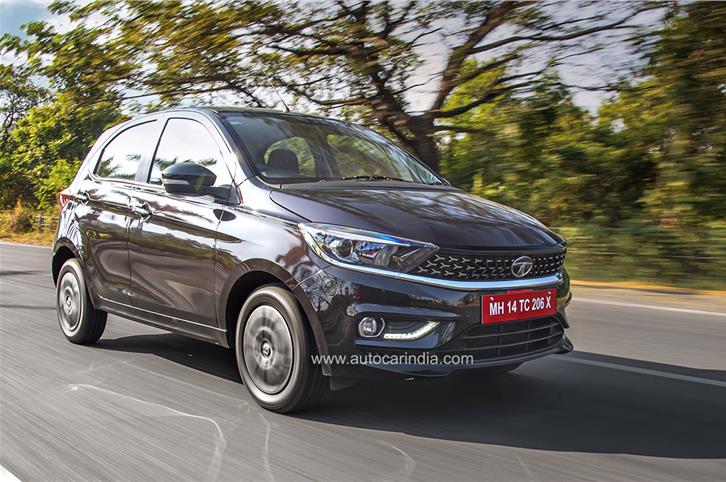
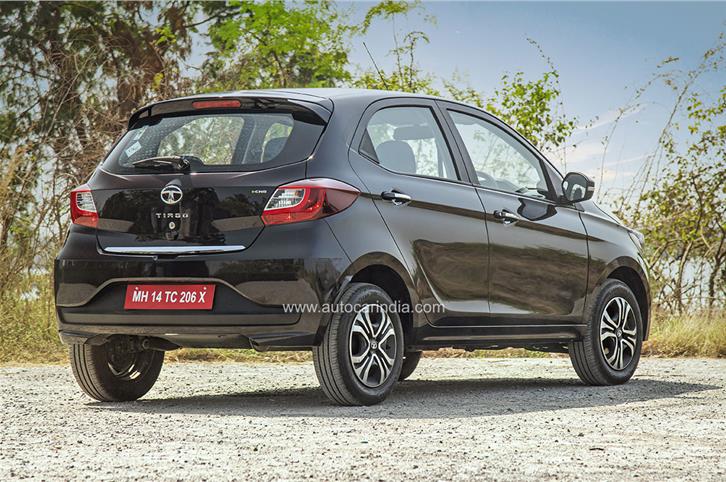
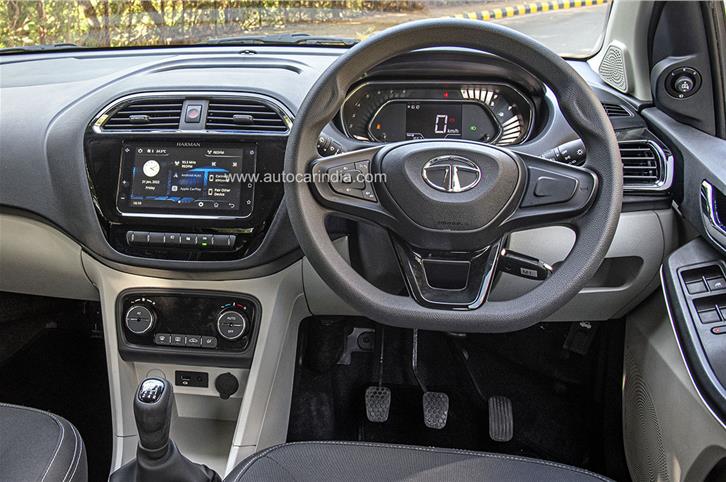

With skyrocketing fuel prices and the demise of diesel in the midsize hatchback market, carmakers have started looking to CNG. But while others have so far limited CNG models to low-end trims only – aimed at cost conscious and commercial buyers – Tata, on the other hand, has chosen to launch the Tiago CNG in four variants and that includes the base XE trim as well as the top-end XZ+. The company says it can, thus, suit a cost-driven buyer as well as one looking for a more premium user experience but also economical running, and that’s what we are going to find out today.
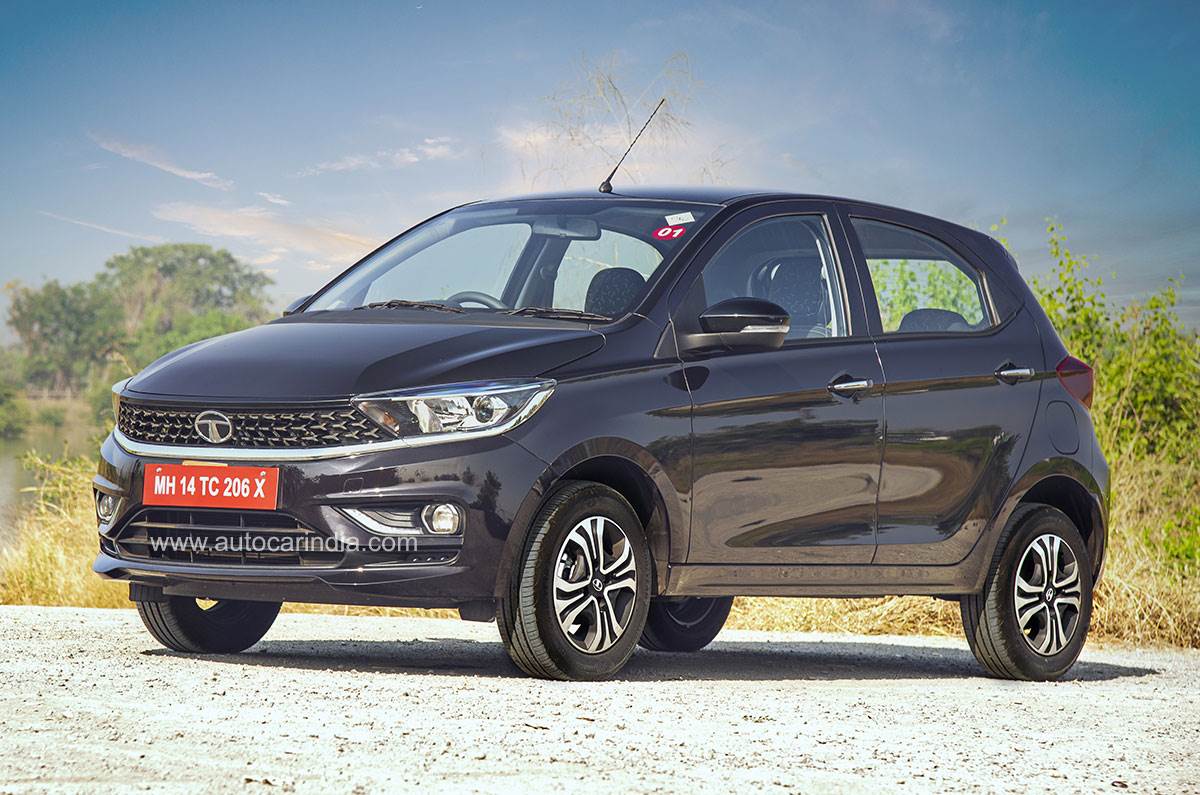
The facelifted Tiago has been around for over a year now, but the car still looks fresh with its sharp design cues. And with the introduction of the CNG model, Tata has taken the opportunity to freshen it up just a wee bit. So you have a new shade, the metallic plum shade that our test car is in, and a few new features added to the Tiago range, like projector headlamps, LED Daytime Running Lamps, and a black and beige interior colour scheme. The rest remains the same though, while the top-end petrol gets 15-inch alloys, the CNG car gets 14-inch stylised steel rims. Tata also did mention that the 4-star GNCAP crash rating does not carry over, but the company is confident of retaining that in a retest.
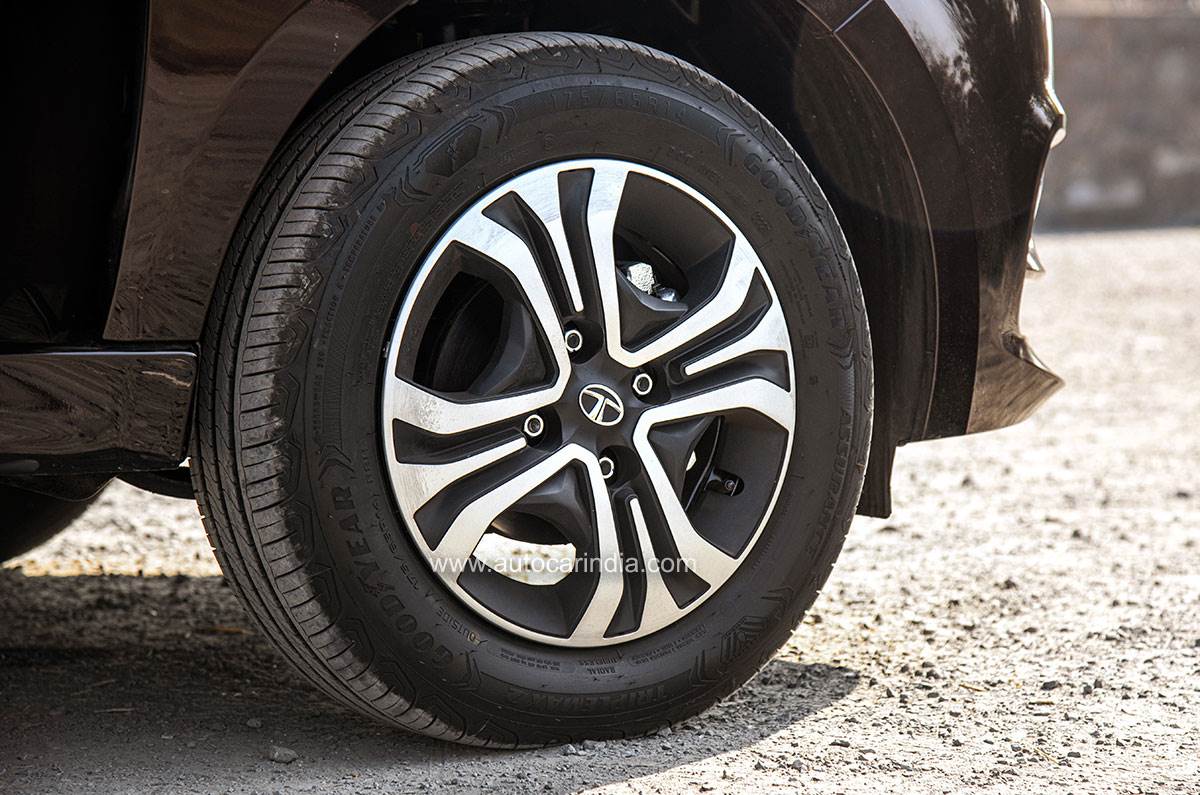
Tata Motors has also re-engineered the way to access the spare wheel, which is now done by moving the rear seat backrest forward and removing the spare wheel from the passenger compartment instead of the boot. Tata Motors also does offer a puncture repair kit with all variants should you not want to remove the spare.
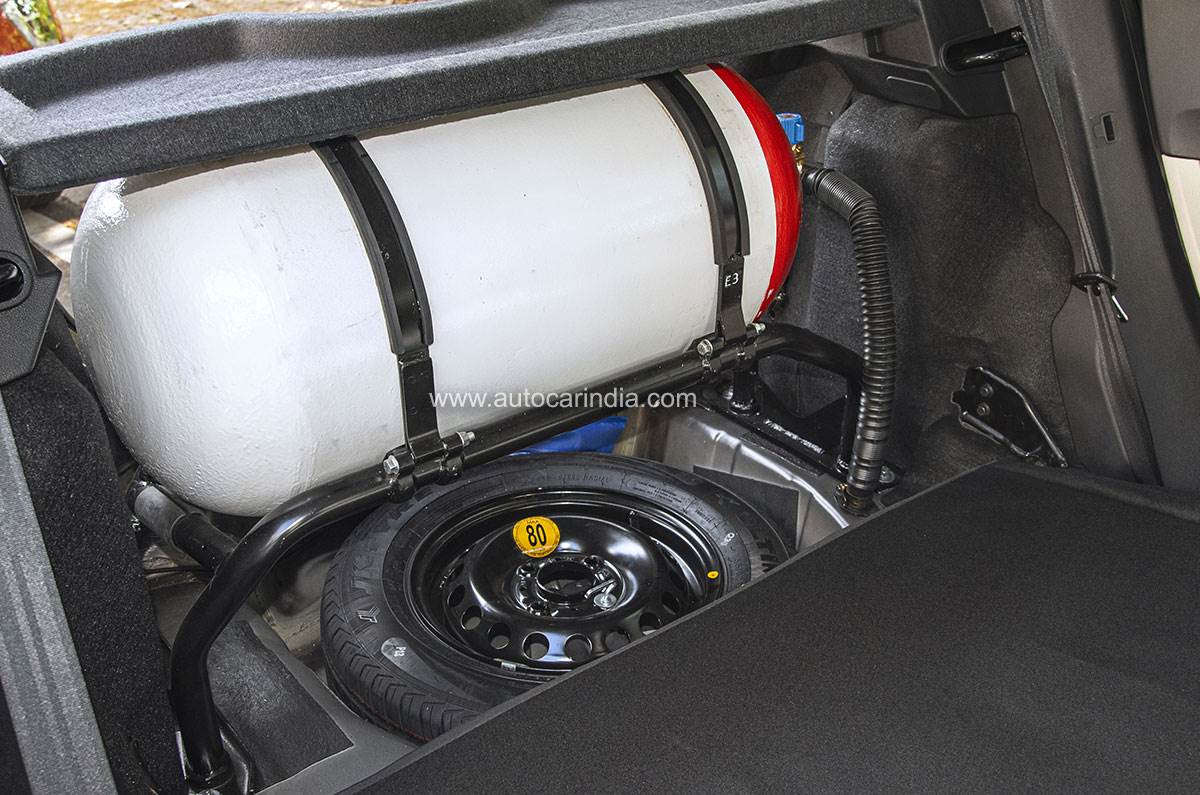
Enter the cabin of the Tiago and the first thing you notice is the light and dark interior colour scheme. The new black and beige interior layout makes the cabin look more upmarket and the sporty looking steering wheel, the full-digital instrument cluster that came with the facelift last year look really neat. There are CNG specific bits like the fuel selector switch, dual fuel gauges and a fire extinguisher.
As with the regular top-end car, the CNG Tiago comes well equipped with a 7-inch touchscreen with Android Auto and Apple CarPlay and it’s coupled to a sweet sounding Harman music system. There’s also auto climate control, electrically operated outside rear view mirrors and a rear parking camera.
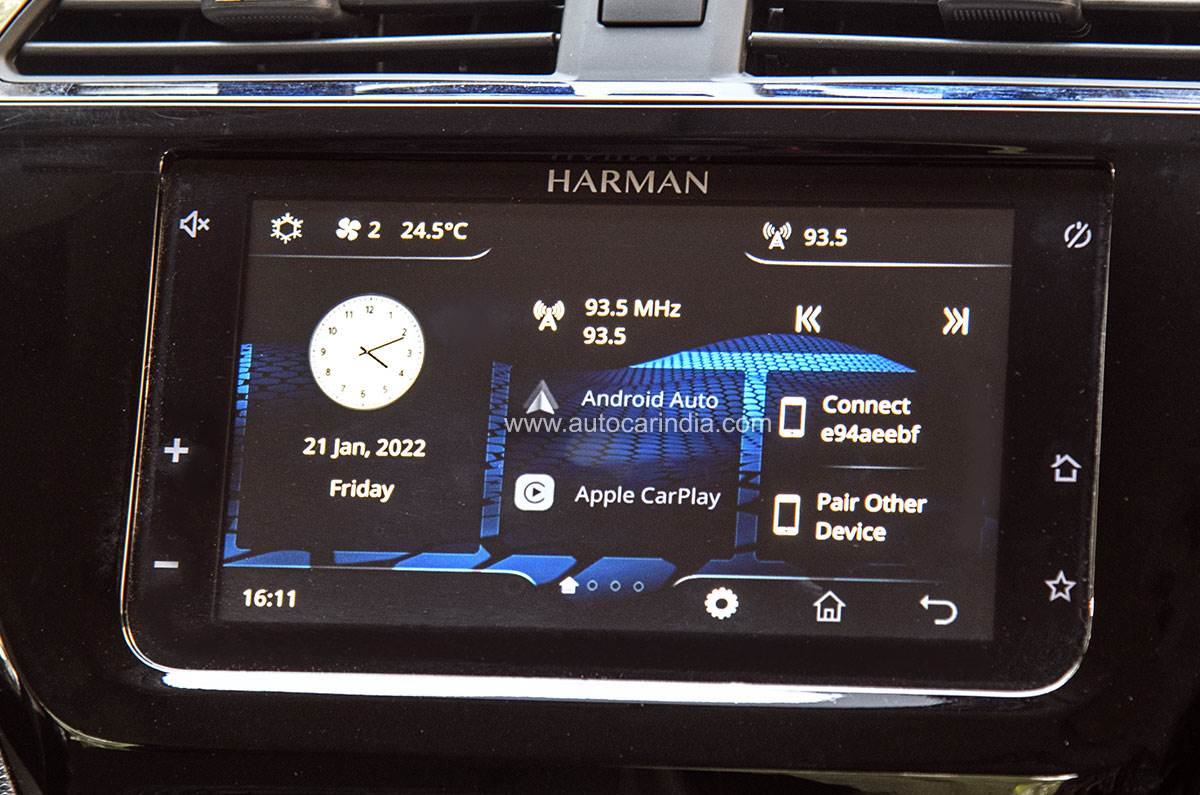
The front seats, as mentioned by us earlier in our reviews and long term reports, continue to be one of the best in business and come with a perfect blend of cushioning, which isn't too hard nor too soft. Driving position is good and the controls fall easily into place just like before.
The Tiago's 1.2-litre engine was upgraded to BS6 emission norms with the facelift and the CNG version shares the same petrol model's powertrain. When running on petrol, it makes 86hp and 113Nm of torque, whereas running on gas, it puts out a maximum of 73hp and 95Nm of torque, which is class best by a good margin over the CNG variants of the Celerio, Santro and WagonR.
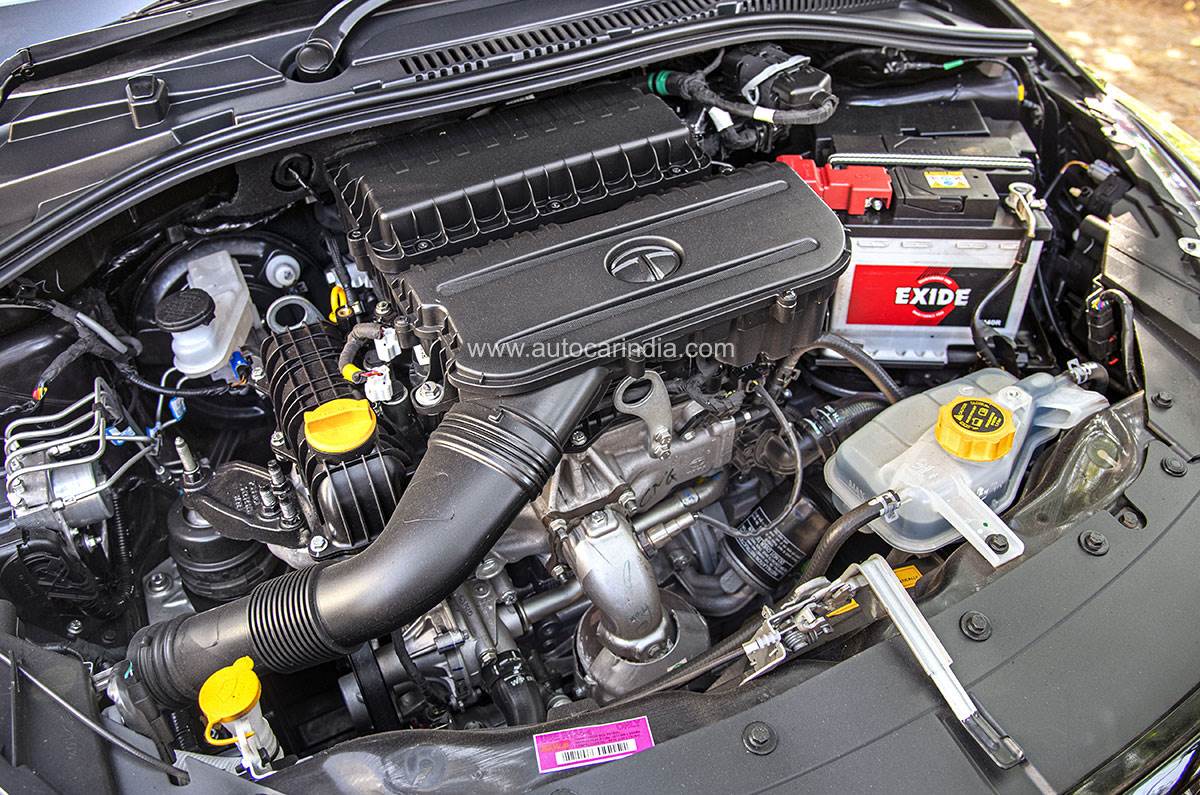
Twist the stylish flip-key and you hear the 1.2-litre engine come to life. This is a three-cylinder unit which means you do get mild vibrations in the cabin. As this was our first time with the BS6 version of the petrol Tiago, we drove it in petrol mode first. Once running, there is a fair bit of engine noise entering the cabin and it gets louder past 2,500 rpm. Power delivery is nice and linear and though it’s not very peppy, the performance is strong enough to execute overtaking manoeuvres without a fuss.
Next up was CNG mode. An interesting point to note here is that unlike its competitors that need to start in petrol mode – as it’s easier in very cold conditions – the Tiago can be started in either mode, with the default set to CNG.
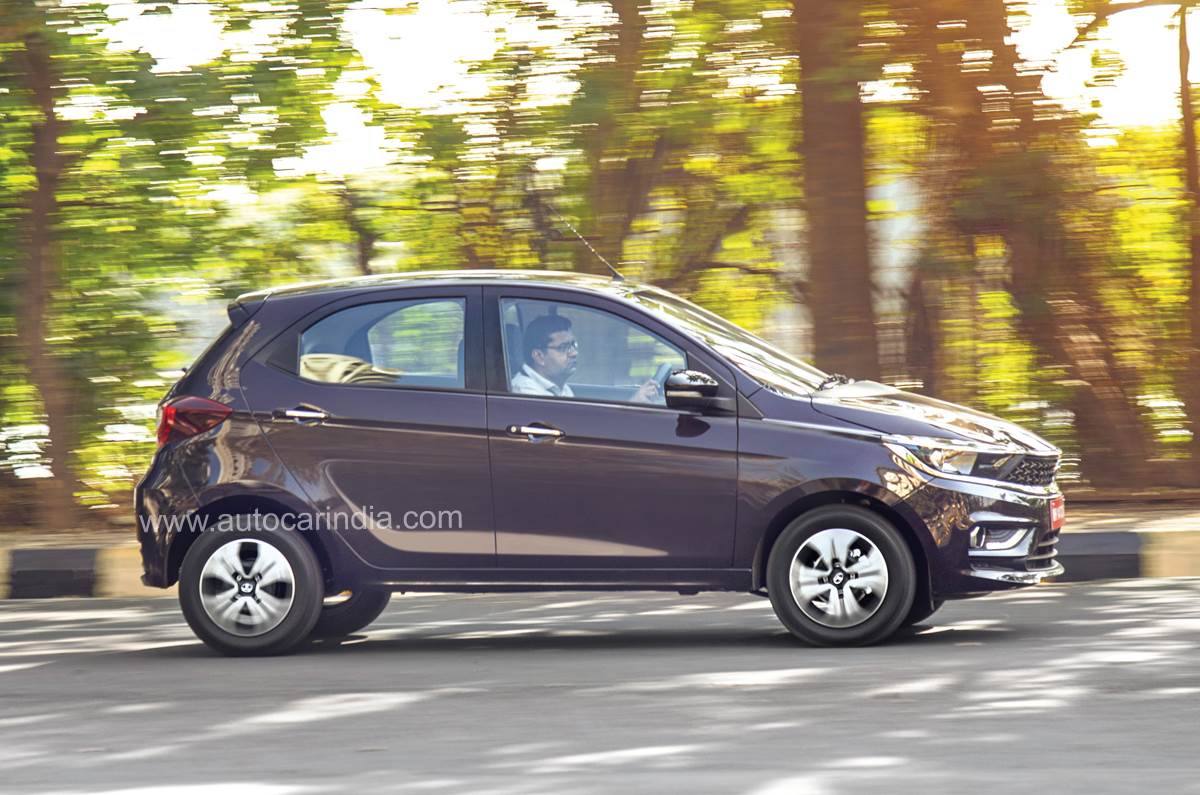
What’s also nice is that the move from standstill feels almost the same as in the petrol mode and the car builds up speed smoothly. In CNG mode, power is down by around 10hp and the result is visible in 0-100kph time, which is almost three seconds slower than petrol mode. However, what's more important here is that flat out driving aside, when driven normally at part throttle, there’s very little difference between the two fuels and driving around at a regular pace will not leave you wanting.
Let's not forget, the Tiago is based on Tata's X0 platform that has been predominantly heavier than its rivals and this does reflect on the car's performance. Tata has done a very good job of tuning the performance curves in both modes and you can’t really tell the difference in power during part throttle acceleration. So for everyday driving when you’re just ambling about on the highway or in city traffic, it’s absolutely fine.
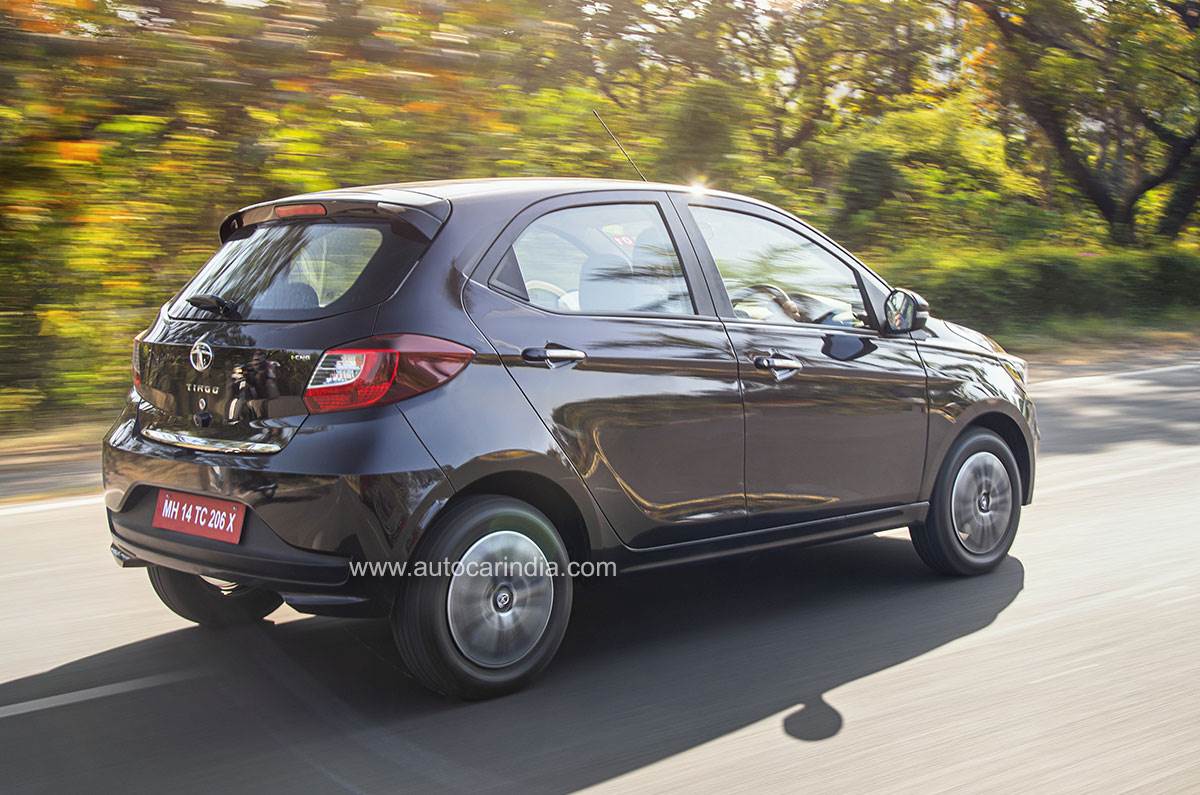
As expected, the Tiago really does well in the ride and handling area. The suspension soaks up most bumps in a fuss-free manner and high-speed stability is very good, the car feels quite solid even at triple digit speeds. What’s also nice is the steering feel that has just the right amount of weight, it is not too light and lifeless nor too heavy and thus the effort required is spot on. What’s also nice is that it self-centres nicely in turns, meaning you don’t have to twirl the wheel back to centre after tight turns.
With the CNG tank in the boot, Tata has also retained the regular petrol tank, which has a 35-litre capacity, while the CNG tank is 60 litres, which enables you to get about 10kg of gas inside. Remember, the actual amount of gas you can fill inside a cylinder depends on the environment temperature and even the pump system pressure. Tata claims a mileage of 26.49km/kg of gas; this isn’t class leading – that distinction goes to the Celerio with 35.60km/kg – but in some very basic preliminary testing we got about 21km/kg with the Tiago which isn’t bad at all.
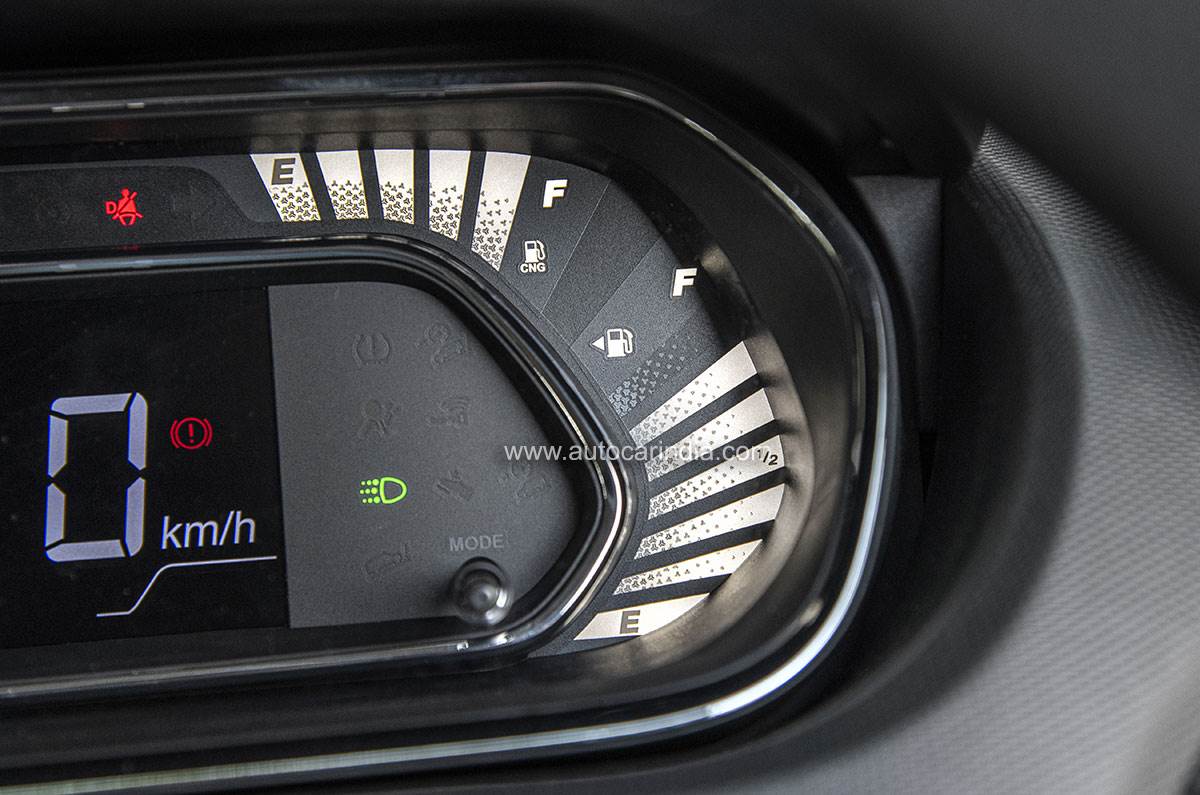
So to sum it all up, the Tiago was already a well-rounded package to begin with, and now with the addition of CNG, Tata Motors has widened the fuel choice and thankfully created a whole line-up of four separate variants, so opting for CNG does not mean having to give up creature comforts.
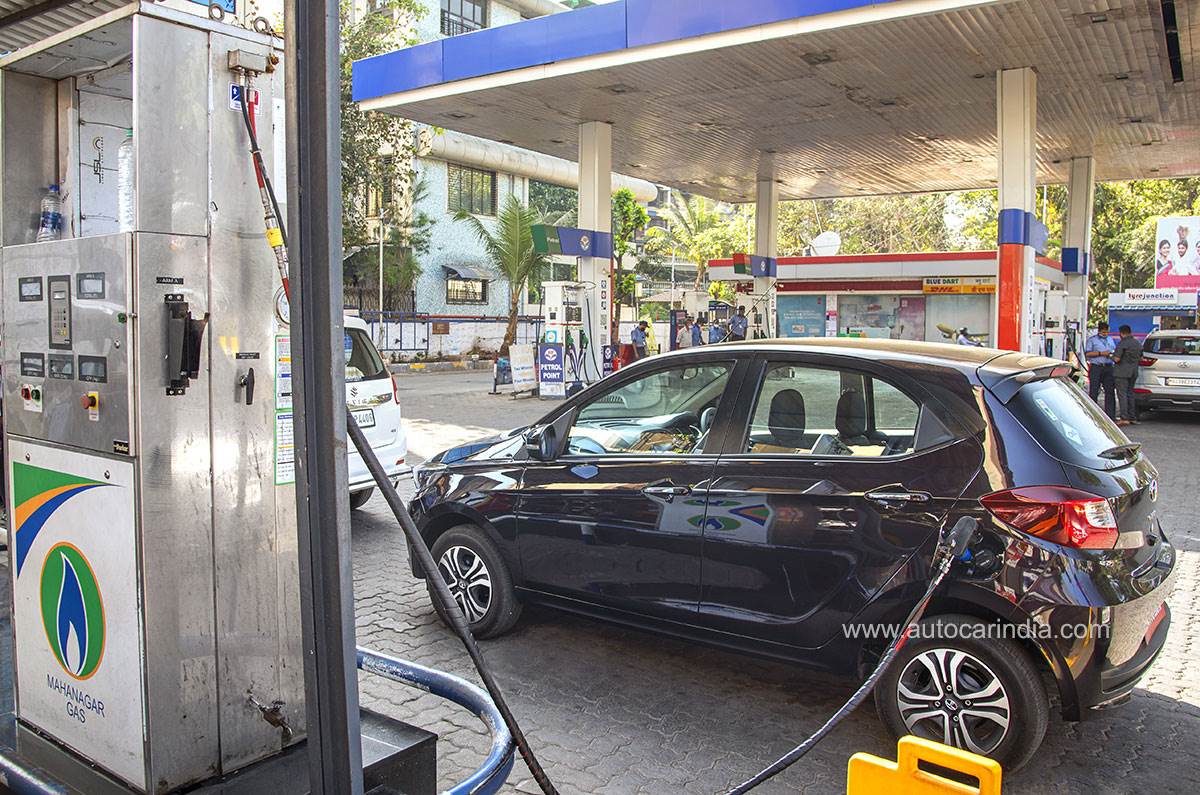
You do pay Rs 90,000 more for the CNG version when compared to the petrol counterpart, and you will trade boot space for the CNG tank, but besides that, the Tiago CNG is a very good option for those who have higher running, the drive experience under CNG power is almost petrol like, the ride and handling is well set-up, space inside is more than adequate, the interiors are well equipped and, of course, there are multiple variants on offer, so as Tata Motors says, the ‘premium-isation’ of CNG has certainly begun.
Also See:
Copyright (c) Autocar India. All rights reserved.

Maruti Suzuki plans to use the Boosterjet engine in more models. Which one would you like to see it in?
Comments
Member Login
Personal Details
No comments yet. Be the first to comment.